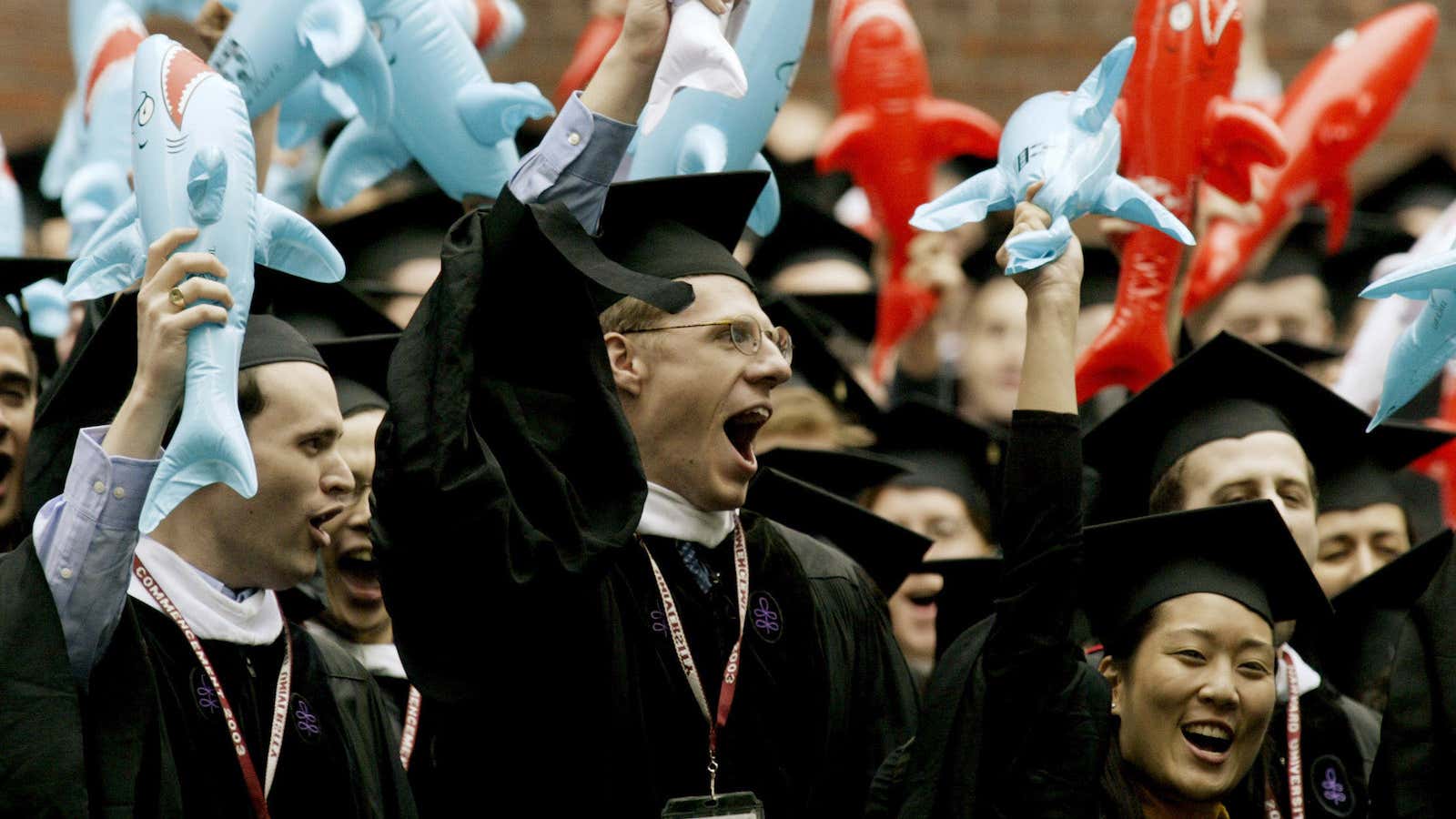Once upon a time, going to law school was a fail-safe way to land a job. Law grads across the US could count on relatively high salaries and stable careers. These days, not so much.
Prospects are dim in the US legal market, thanks in part to law firms trimming their numbers post-recession. (While the above chart appears to show a renewed jobs boost for grads in 2014, that’s actually due to the class having 3,000 fewer people [paywall] than the one before it.) Yet amid these gloomy figures, some law schools have been claiming almost magically high job placement statistics for their graduates—enough to incur widespread suspicion, and now a major lawsuit.
The Thomas Jefferson School of Law, in California, is going to trial today (March 7) for allegedly defrauding its students by manipulating data, inflating numbers, and counting some graduates as “employed” when they weren’t.
Accusing the school of such practices is Anna Alaburda, a 2008 graduate of the school who said she wouldn’t have attended the school if it hadn’t inflated employment claims. (In 2011, Thomas Jefferson said 92% of graduates were working full-time—despite those grads having a pass rate for the state bar exam of less than 50%.)
That the case has struggled its way to court is no small victory. While individuals have raised more than a dozen suits (paywall) against US law schools in recent years on this exact issue, Alaburda’s lawsuit—filed as a class-action with other former students in 2011 and cleared by a San Diego judge to proceed as an individual case in December 2015—marks the first time a law school is being forced to stand trial for it.
Which suggests that she’s maybe a good lawyer after all. Hell hath no fury, perhaps, like a law graduate scorned by her own law school—and newly equipped with a degree to put that schooling to use against them.
Alaburda’s only asking for $125,000 in damages—less than her current student debt of $170,000—but the results of her case, or even just the arguments presented today, will be nervously watched by campuses across the country.




